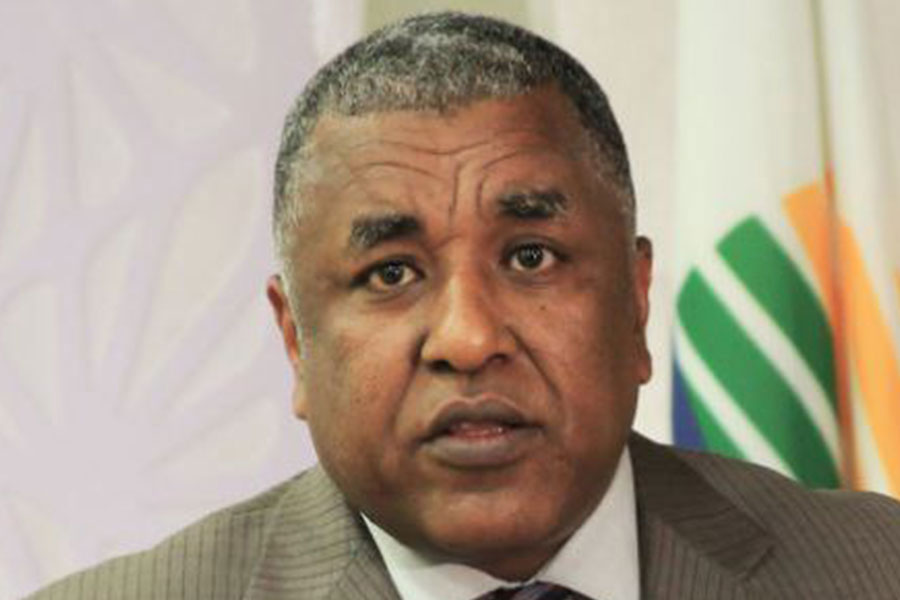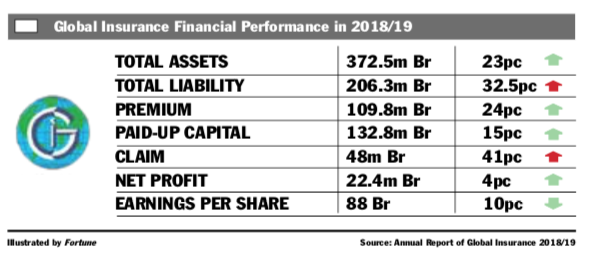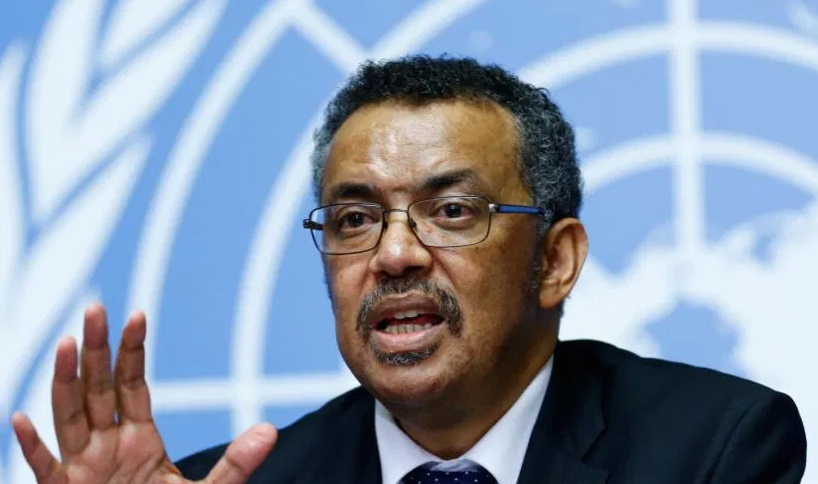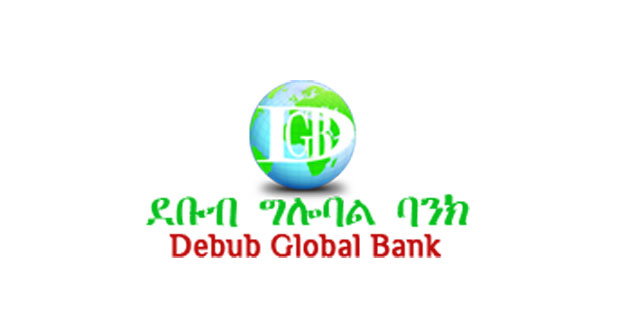
Sep 30 , 2023
By Theódros Tadesse Ayele
As global dynamics evolve, traditional political frameworks seem to gradually step aside, yielding the stage to the increasing clout of identity politics. This transformation is, by no means, region-specific.
In his book, "Identity: The Demand for Dignity & the Politics of Resentment," Francis Fukuyama explores the profound role of identity in contemporary politics and its implications for societal cohesion. In an interconnected world, individuals increasingly seek recognition, respect, and dignity for their identities, and the politics of resentment can arise when these demands go unfulfilled. Fukuyama analyses the consequences of identity politics and proposes strategies for managing identity-related conflicts.
A perfect epitome of this trend is Ethiopia, a country imbued with intricate historical and ethnic diversities.
Rewind to the 20th Century: Politics was often a play of powerful ideological blocs, most notably exemplified by the Cold War – a tense, global stare-down between capitalist and communist ideologies. These ideologies drew clear lines on the map, not just geopolitically but also in alliances and global influence.
But as the century waned, so did the unwavering faith in these ideologies. Enter neoliberal economic policies, globalisation, and a growing scepticism towards the capacities of ideological frameworks. These once-revered paradigms began showing cracks, often failing to adequately address emerging challenges – from socio-economic disparities to environmental crises.
Simultaneously, the world grappled with new issues that defied traditional ideological responses, like climate change, migratory patterns, and the complexities of cultural pluralism.
Naturally, the political apparatus sought alternative modalities.
Identity politics, anchored in the aspirations and grievances of specific socio-ethnic groups, gained prominence. Whether based on race, ethnicity, religion, or gender, the essence remained constant: the recognition and redemption of historic wrongs and systemic inequities.
Factors accelerating this rise are manifold. Globalisation, with its inherent dual character, simultaneously connected and fragmented the world. As the planet became a global village, the clamour for recognition of distinct identities surged.
Activism, often at grassroots levels, began challenging long-held power structures. The ubiquity of digital communications and social media gave wings to these movements, enabling mobilisation and granting them a voice that resonates beyond local borders.
If one were to find a country that encapsulates the challenges and nuances of this transition, Ethiopia would be a prime candidate. Historically, its political landscape was painted with strokes of diverse influences, from the Marxist-Leninist hues of the Derg regime in the 1970s and 1980s to the vibrant colours of pan-Africanism.
Add to this mix, Ethiopia’s rich ethnic mosaic, which has long-standing tensions and past injustices simmering just beneath the surface. It is hardly surprising that identity politics found fertile ground here.
A watershed moment was in 1991 when the Ethiopian government institutionalised recognising ethnic identities, pioneering a multicultural federalist system. While it granted regional autonomy, it inadvertently fueled identity-driven politics, evident in the sprouting of ethnocentric political factions.
The potency of identity politics lies in its ability to empower marginalised voices, spotlighting long-overlooked grievances. But this potency is not without its pitfalls.
The divisions intensified by identity politics can threaten the fabric of national unity. When politics is increasingly seen through the prism of identity, it often catalyses polarisation and an ‘us versus them’ dynamic.
In a country like Ethiopia, this can eclipse overarching national imperatives, making cohesive governance a Herculean task.
This phenomenon is not theoretical for Ethiopians. Real-world manifestations are evident in regions such as Tigray and Oromia, where identity-centric politics has stoked the flames of conflict and mass displacements.
Like many other countries grappling with identity politics, Ethiopia needs a calibrated approach to steer the ship in choppy waters.
Addressing historical and systemic inequalities should serve as a departure point. Only through tangible efforts, both legislative and socio-economic, can sustainable peace be envisioned. Governance and policy must find the golden mean – a balance between addressing group-specific interests and overarching national priorities.
For a country as diverse as Ethiopia, this involves bolstering socio-economic growth that does not merely benefit a segment but ensures holistic development.
Crucially, dialogue must be the cornerstone of the way forward. Encouraging conversations that foster understanding and reconciliation, coupled with efforts to nurture a shared sense of national identity, can bridge the chasms of identity-based divisions.
Robust institutions that rise above identity lines are essential. Underpinned by the rule of law, these institutions` accountability and impartiality can be the pillars upon which a reconciled society stands.
PUBLISHED ON
Sep 30,2023 [ VOL
24 , NO
1222]


Fortune News | Oct 28,2023

Radar | Oct 15,2022

Commentaries | Jul 01,2023

Fortune News | Nov 24, 2024

Fortune News | Mar 28,2020

Commentaries | Apr 17,2020

Fortune News | Jan 27,2024

Viewpoints | Aug 19,2023

Fortune News | Mar 21,2020

Viewpoints | Sep 30,2023

My Opinion | 131656 Views | Aug 14,2021

My Opinion | 128020 Views | Aug 21,2021

My Opinion | 125983 Views | Sep 10,2021

My Opinion | 123607 Views | Aug 07,2021

Dec 22 , 2024 . By TIZITA SHEWAFERAW
Charged with transforming colossal state-owned enterprises into modern and competitiv...

Aug 18 , 2024 . By AKSAH ITALO
Although predictable Yonas Zerihun's job in the ride-hailing service is not immune to...

Jul 28 , 2024 . By TIZITA SHEWAFERAW
Unhabitual, perhaps too many, Samuel Gebreyohannes, 38, used to occasionally enjoy a couple of beers at breakfast. However, he recently swit...

Jul 13 , 2024 . By AKSAH ITALO
Investors who rely on tractors, trucks, and field vehicles for commuting, transporting commodities, and f...

Jun 28 , 2025
Meseret Damtie, the assertive auditor general, has never been shy about naming names...

Jun 21 , 2025
A well-worn adage says, “Budget is not destiny, but it is direction.” Examining t...

Jun 14 , 2025
Yet again, the Horn of Africa is bracing for trouble. A region already frayed by wars...

Jun 7 , 2025
Few promises shine brighter in Addis Abeba than the pledge of a roof for every family...

Jun 29 , 2025
Addis Abeba's first rains have coincided with a sweeping rise in private school tuition, prompting the city's education...

Jun 29 , 2025 . By BEZAWIT HULUAGER
Central Bank Governor Mamo Mihretu claimed a bold reconfiguration of monetary policy...

Jun 29 , 2025 . By BEZAWIT HULUAGER
The federal government is betting on a sweeping overhaul of the driver licensing regi...

Jun 29 , 2025 . By NAHOM AYELE
Gadaa Bank has listed 1.2 million shares on the Ethiopian Securities Exchange (ESX),...